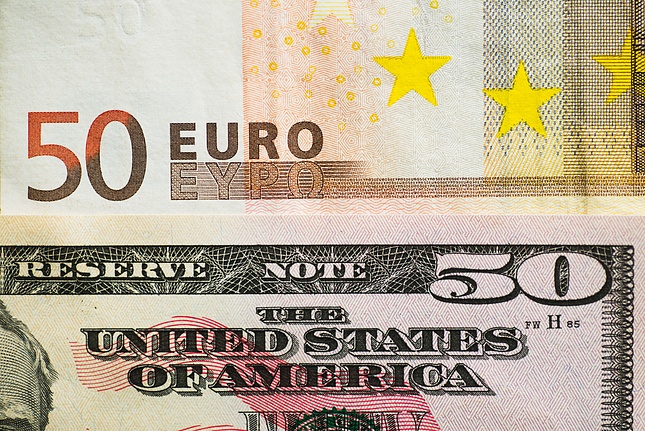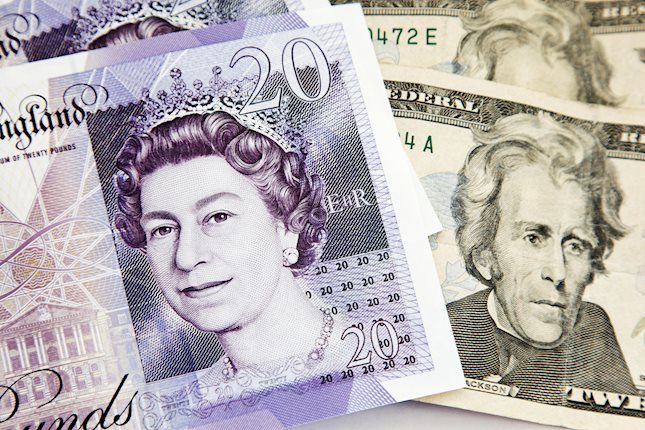- USD/CHF depreciates as traders expect a dovish statement on policy outlook by the Fed’s Powell.
- The decline in the US Treasury yields contributes to the downward pressure on the US Dollar.
- The safe-haven CHF may extend its gain due to the ongoing deadlock in securing a truce between Israel and Hamas.
USD/CHF edges lower as the US Dollar (USD) loses ground ahead of the US Federal Reserve (Fed) Chair Jerome Powell’s speech at the Jackson Hole Symposium scheduled later in the North American session. Powell may deliver a statement about the possibility of interest rate cuts in the United States (US), which is highly anticipated by market participants. The USD/CHF pair trades around 0.8520 during the Asian session on Friday.
The US Dollar Index (DXY), which measures the value of the US Dollar against its six major peers, faces challenges amid declining US Treasury yields. The DXY trades around 101.30 with 2-year and 10-year yields on US bond coupons standing at 3.99% and 3.85%, respectively, at the time of writing.
On Thursday, Federal Reserve Bank of Boston President Susan Collins indicated that it will soon be appropriate to start cutting rates, emphasizing that incoming data will guide the pace of these cuts. Meanwhile, Kansas City Fed President Jeff Schmid mentioned that he is closely examining the factors behind the rise in the unemployment rate and will rely on data to determine whether to support a rate reduction next month.
The Swiss Franc (CHF) may advance further due to safe-haven flows due to the ongoing deadlock in securing a truce between Israel and Hamas. The stalemate increases the risk of a broader conflict in the Middle East. Disagreements over Israel's military presence in Gaza and Palestinian prisoner releases are hindering progress on a ceasefire and hostage deal.
Sources, including two Hamas officials and three Western diplomats, indicate that these disputes have arisen from additional demands introduced by Israel after Hamas initially accepted a ceasefire proposal, according to Reuters.
Commerzbank FX Analyst Michael Pfister expects moderate weakness for the Swiss franc (CHF) in the near term, forecasting that the Swiss National Bank (SNB) will likely reduce interest rates further. However, Pfister emphasized to remember that global demand for safe-haven assets may remain strong due to ongoing uncertainties.
Swiss Franc FAQs
The Swiss Franc (CHF) is Switzerland’s official currency. It is among the top ten most traded currencies globally, reaching volumes that well exceed the size of the Swiss economy. Its value is determined by the broad market sentiment, the country’s economic health or action taken by the Swiss National Bank (SNB), among other factors. Between 2011 and 2015, the Swiss Franc was pegged to the Euro (EUR). The peg was abruptly removed, resulting in a more than 20% increase in the Franc’s value, causing a turmoil in markets. Even though the peg isn’t in force anymore, CHF fortunes tend to be highly correlated with the Euro ones due to the high dependency of the Swiss economy on the neighboring Eurozone.
The Swiss Franc (CHF) is considered a safe-haven asset, or a currency that investors tend to buy in times of market stress. This is due to the perceived status of Switzerland in the world: a stable economy, a strong export sector, big central bank reserves or a longstanding political stance towards neutrality in global conflicts make the country’s currency a good choice for investors fleeing from risks. Turbulent times are likely to strengthen CHF value against other currencies that are seen as more risky to invest in.
The Swiss National Bank (SNB) meets four times a year – once every quarter, less than other major central banks – to decide on monetary policy. The bank aims for an annual inflation rate of less than 2%. When inflation is above target or forecasted to be above target in the foreseeable future, the bank will attempt to tame price growth by raising its policy rate. Higher interest rates are generally positive for the Swiss Franc (CHF) as they lead to higher yields, making the country a more attractive place for investors. On the contrary, lower interest rates tend to weaken CHF.
Macroeconomic data releases in Switzerland are key to assessing the state of the economy and can impact the Swiss Franc’s (CHF) valuation. The Swiss economy is broadly stable, but any sudden change in economic growth, inflation, current account or the central bank’s currency reserves have the potential to trigger moves in CHF. Generally, high economic growth, low unemployment and high confidence are good for CHF. Conversely, if economic data points to weakening momentum, CHF is likely to depreciate.
As a small and open economy, Switzerland is heavily dependent on the health of the neighboring Eurozone economies. The broader European Union is Switzerland’s main economic partner and a key political ally, so macroeconomic and monetary policy stability in the Eurozone is essential for Switzerland and, thus, for the Swiss Franc (CHF). With such dependency, some models suggest that the correlation between the fortunes of the Euro (EUR) and the CHF is more than 90%, or close to perfect.
Information on these pages contains forward-looking statements that involve risks and uncertainties. Markets and instruments profiled on this page are for informational purposes only and should not in any way come across as a recommendation to buy or sell in these assets. You should do your own thorough research before making any investment decisions. FXStreet does not in any way guarantee that this information is free from mistakes, errors, or material misstatements. It also does not guarantee that this information is of a timely nature. Investing in Open Markets involves a great deal of risk, including the loss of all or a portion of your investment, as well as emotional distress. All risks, losses and costs associated with investing, including total loss of principal, are your responsibility. The views and opinions expressed in this article are those of the authors and do not necessarily reflect the official policy or position of FXStreet nor its advertisers. The author will not be held responsible for information that is found at the end of links posted on this page.
If not otherwise explicitly mentioned in the body of the article, at the time of writing, the author has no position in any stock mentioned in this article and no business relationship with any company mentioned. The author has not received compensation for writing this article, other than from FXStreet.
FXStreet and the author do not provide personalized recommendations. The author makes no representations as to the accuracy, completeness, or suitability of this information. FXStreet and the author will not be liable for any errors, omissions or any losses, injuries or damages arising from this information and its display or use. Errors and omissions excepted.
The author and FXStreet are not registered investment advisors and nothing in this article is intended to be investment advice.
Recommended content
Editors’ Picks

EUR/USD consolidates gains below 1.0500 amid weaker US Dollar
EUR/USD holds gains below 1.0500 in European trading on Monday, having recovered from its two-year low of 1.0332. This rebound is due to a sell-off in the US Dollar and the US Treasury bond yields amid a US bond market rally. The focus shifts to German data and ECB-speak.

GBP/USD flirts with 2600 on the road to recovery
GBP/USD is trading close to 1.2600 early Monday, opening with a bullish gap at the start of a new week. A broad US Dollar decline alongside the US Treasury bond yields on appointment of a fiscal hawk Scott Bessent as the Treasury Chief helped the pair stage a solid comeback.

Gold: Is the tide turning in favor of XAU/USD sellers?
After witnessing intense volatility in Monday's opening hour, Gold's price is licking its wounds near $2,700. The bright metal enjoyed good two-way trades before sellers returned to the game after five straight days.

Elections, inflation, and the bond market

Eurozone PMI sounds the alarm about growth once more
The composite PMI dropped from 50 to 48.1, once more stressing growth concerns for the eurozone. Hard data has actually come in better than expected recently – so ahead of the December meeting, the ECB has to figure out whether this is the PMI crying wolf or whether it should take this signal seriously. We think it’s the latter.

Best Forex Brokers with Low Spreads
VERIFIED Low spreads are crucial for reducing trading costs. Explore top Forex brokers offering competitive spreads and high leverage. Compare options for EUR/USD, GBP/USD, USD/JPY, and Gold.